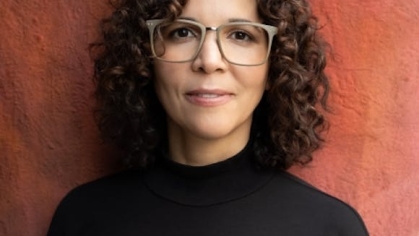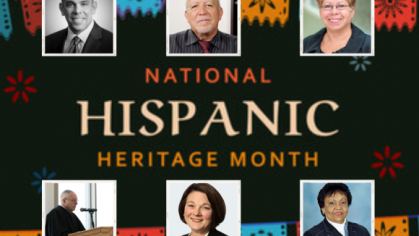Cynthia McCall-Brantley (NCAS ’14) remembers the sweltering hot day in early June, at the Korona Community School in the Himo region of Tanzania. Along with seven other Rutgers University-Newark students and staff, she rolled up her sleeves and got to work, helping parents and community members build a dormitory for the school.
“They were making cement with a mixer but brought up all the gravel and water from a nearby river, and they were doing this with no running water or electricity,” says McCall-Brantley. “There were men, and also many women. We got right in there with them. It was an amazing experience.”
McCall-Brantley, a psychology and sociology major, took part in one of two service-learning trips this summer—one to Tanzania, the other to India—that are part of the International Service Learning and Leadership Exchange (ISSLE), sponsored by RU–N’s Office of Service Learning and Student Development.
ISSLE offers RU–N students unique experiential-learning opportunities that challenge them to collaborate with faculty, student leaders, and community organizers who are actively working to create social, political, and economic change around the globe.
During the 10-day intensive trips, students hear talks on the history, culture, and public policy of their chosen country; meet with local university students; visit with NGOs and community groups; and engage in a wide variety of service projects at local schools, hospitals, halfway houses, orphanages, and other facilities—including a photo project with a Maasai village in Tanzania, and a social-media workshop with a female technology group in India.
Prior to the trips, they raise money to help subsidize their travel, while reaching out to community members and local organizations for goods to donate to the groups they visit. They’re also put through a rigorous orientation program to help prepare them intellectually, mentally and emotionally for the long days they’ll put in and the exposure they’ll have to new people, languages, and cultures.
“We have the students meet with professionals about some issues they’ll be confronting,” says Clayton Walton, Dean of Student Life and Director of the Paul Robeson Center, who leads the trips. “They also go through an important team-building process.”
NCAS students made up nearly half of the 16 students who participated in the trips this summer. Their majors range from sociology and psychology to art, social work and biology.
Amyjaelle Belot, a senior anthropology major and biology minor from Trenton, N.J., went on the India trip, which she calls a life-changing experience.
As a member of many campus organizations and student director for Student Health Advocates, which works under RU-N Health Services, she’s a seasoned campus leader. Dealing with such a diverse student body on social-justice issues, she thought she’d seen it all.

“I realized that the world is much bigger than just the U.S.,” says Belot. “I saw how kids my age in India have it hard—especially women—and often can’t aspire to what they want in life because of the patriarchal and caste systems in place. So, it was great to have an opportunity to make a change in other people’s lives.”
In addition to the summer trips to Tanzania and India, Walton’s office ran a six-week trip to Nicaragua over winter break in 2013-2014. During that excursion, five female RU-N students helped install a solar panel at a remote rural maternity clinic whose electricity routinely went out. A winter-break trip for 2014-2015 is in the planning stages now.
The trips require a time-and-energy commitment, along with a financial one.
The six-week excursion runs students $750 without academic credits. The 10-week trips, for which students earn three academic credits, costs them $1,500 plus the tuition fee, totaling $2,700. Students chip away at this cost through scholarships and the funds they raise prior to the trip, and often pay the rest via payment plans set up with the university.
NCAS Senior Associate Dean Sherri-Ann Butterfield has been a Tanzania trip advisor over the years. She says that these international experiences provide lifelong benefits that shape students’ lives both personally and professionally.
“Witnessing our students’ transformation on these trips is some of the most rewarding time I have spent as an educator,” says Butterfield. “ It’s one thing to challenge students’ notions of social inequality and inequity in a classroom, but doing so while at a Tanzanian orphanage or with community groups is completely different. Nothing compares.”
Meanwhile, Walton and his staff have built solid relationships with the organizations they visit, and place a premium on continuity. They have achieved that in Tanzania, which they have been visiting since 2011.
“We want students to feel like they’re going into a community that understands them and what they’re bringing to the table,” Walton says. “We also want to make sustainable change and do capacity building. So, the more we return to these groups, the more impact we can have.”
He also witnesses the transformation students go through first-hand, saying that they benefit from stretching themselves in multiple ways—and inevitably come away with a deeper sense of their own identity and their relationship to rest of world.
McCall-Brantley agrees.
“I would do it again in a heartbeat,” she says. “The opportunity to travel and serve keeps you in touch with who you are, and helps you realize you have the ability to get outside your comfort zone and give. That’s very powerful.”


